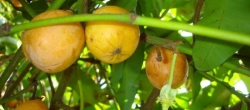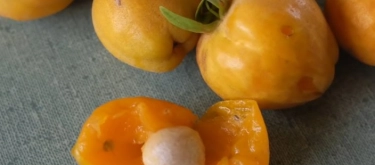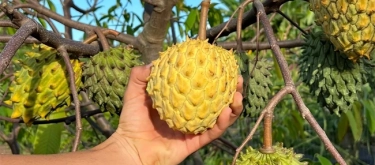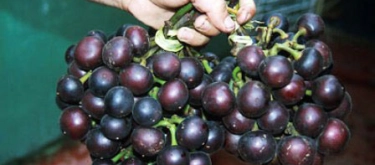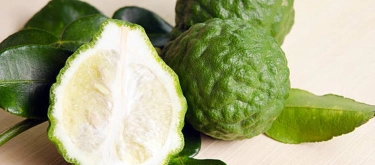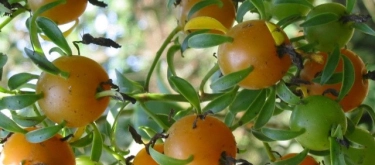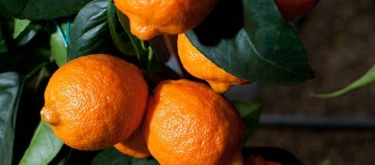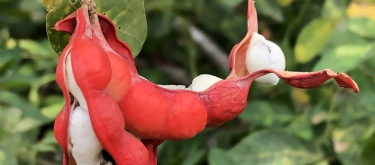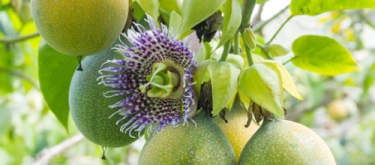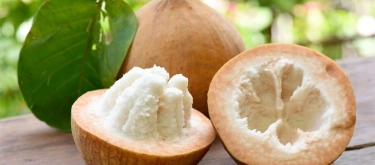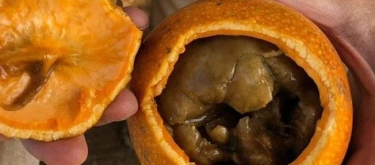Platonia: Taste Profile, Aroma, Benefits and Health Risks
Platonia (also known as Bacuri; Platonia insignis) is a tropical fruit native to the Amazon rainforest, particularly prevalent in northern Brazil, Colombia, and Guyana. Valued historically by indigenous peoples and local communities, platonia is highly prized for its unique taste, aromatic pulp, and nutritional properties. Although less known internationally, it is increasingly appreciated for culinary and commercial potential, especially within gourmet and tropical fruit markets.
Platonia fruit is generally safe, but due to its strong acidity, individuals with sensitive digestion, gastritis, acid reflux, or stomach ulcers should consume cautiously. Limited information exists regarding allergenicity, so people allergic to tropical fruits should introduce it carefully. Pregnant women can safely consume platonia in moderate quantities.
What does Platonia taste like?
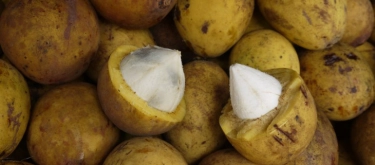
Complete Sensory Description:
Taste
Platonia offers a vibrant blend of sweet and intensely tart flavors, characterized by a prominent acidic brightness balanced by honeyed sweetness. The taste reveals notes reminiscent of citrus, mango, passionfruit, and subtle floral undertones, creating a pleasantly exotic complexity.
Aroma
Platonia’s aroma is intensely tropical, citrusy, and subtly floral, featuring fragrances evocative of passionfruit, mango, and a delicate hint of pineapple. The aromatic profile is fresh, fruity, and distinctly tropical.
Texture
The fruit’s exterior has a firm, thick, woody rind that encloses a soft, creamy pulp. Platonia pulp is succulent, juicy, and slightly fibrous, containing several large, slippery seeds. The contrast between the tough rind and tender, creamy pulp is notably distinct.
Appearance
Platonia fruits are round or oval-shaped, measuring approximately 8–15 cm in diameter. The rind color is yellowish-brown to golden-brown when ripe, textured, thick, and durable. Internally, the pulp ranges from creamy-white to pale-yellow, segmented loosely around large seeds.
In-depth Flavor Analysis:
The appealing flavor profile of platonia results from a complex interplay of sugars, organic acids, tannins, and aromatic volatiles:
-
Sweetness and Acidity: Platonia is exceptionally rich in organic acids, predominantly citric and malic acid, contributing intense tartness and refreshing citrus-like brightness. Its acidity is prominently sharp, similar to passionfruit or citrus fruits. The fruit’s sweetness, derived primarily from fructose and glucose, complements this acidity, delivering honeyed and tropical notes that balance the tartness effectively.
-
Aromatic Complexity: Volatile aromatic compounds such as ethyl butanoate, hexyl acetate, and terpenes including geraniol and linalool contribute to platonia’s tropical fruity aroma. These compounds deliver mango-like sweetness, passionfruit tanginess, and floral nuances, enriching the sensory experience significantly.
-
Tannins and Bitterness: Platonia contains moderate levels of tannins concentrated mostly in the peel, imparting subtle bitterness and slight astringency, which enhances overall complexity without dominating the flavor profile.
-
Environmental Influence: Flavor intensity varies notably with ripeness, climatic conditions, and growing regions. Fruits harvested in optimal conditions—warm climate, balanced rainfall—exhibit intensified sweetness, balanced acidity, and enhanced aromatic properties.
Varieties and Culinary Applications:
Platonia typically exists as a single species, Platonia insignis, without commercialized varieties, though regional differences in flavor intensity and fruit size may exist. Culinary uses include:
- Fresh Consumption: Pulp commonly consumed fresh or as juice due to refreshing taste and fragrance.
- Beverages: Popularly utilized in juices, smoothies, cocktails, and traditional fermented beverages, providing intense tropical flavor and acidity.
- Desserts and Sweets: Widely incorporated into sorbets, ice creams, mousses, custards, jams, and sauces due to its vibrant flavor and creamy texture.
- Savory Applications: Occasionally featured in sauces, marinades, or dressings, especially paired with seafood or chicken dishes to introduce vibrant acidity.
Selection and Storage:
Select platonia fruits that feel heavy for their size, with firm, evenly colored, yellowish-brown rinds free from mold or deep blemishes. Store ripe platonia fruits refrigerated for up to one week. Due to the thick rind, fresh fruits remain protected, preserving pulp freshness effectively. For extended storage, freeze extracted pulp promptly.
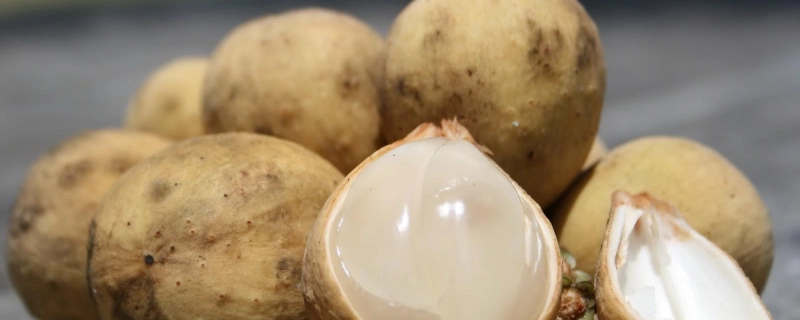
Nutritional Insights:
Platonia fruit is nutritionally valuable, providing high amounts of vitamin C, dietary fiber, antioxidants, minerals (potassium, calcium, phosphorus), and carotenoids. Regular consumption supports immune function, enhances iron absorption, aids digestion, and contributes significantly to antioxidant protection against oxidative stress. Its high vitamin C content is beneficial in addressing vitamin deficiencies, supporting skin health, and boosting overall immunity, particularly valuable in regions prone to nutritional deficiencies or frequent infections.
Expert Insights & Culinary Tips:
- Flavor Pairings: Platonia pairs exceptionally well with sweeteners like honey, brown sugar, and condensed milk, dairy products such as yogurt, ice cream, and soft cheeses, as well as tropical fruits like mango, pineapple, and passionfruit.
- Preparation Recommendations: Due to intense acidity, culinary experts advise balancing platonia pulp with sweet or creamy components to enhance harmony in desserts and beverages. Straining pulp may help achieve smoother textures in preparations such as sorbets or juices.
- Seed Management: Seeds should always be carefully removed and discarded, as they are inedible and can interfere with texture.
Interesting and Curious Facts:
- Indigenous Amazonian tribes traditionally utilized platonia as both food and medicine, applying fruit extracts topically for skin ailments and internally for digestive support.
- Platonia seeds yield a rich oil historically used in local Amazonian skincare, valued for moisturizing and soothing properties.
- In Brazil, "Bacuri" ice cream and juices are widely appreciated delicacies, representing regional Amazonian culinary traditions and gourmet specialties.
Harm and Dietary Considerations:
Platonia’s strong acidity may cause irritation or exacerbate symptoms in individuals with sensitive digestion, gastritis, ulcers, or reflux. Those allergic to tropical fruits should introduce platonia gradually due to limited allergenicity data. Safe for pregnant women in moderation.
Religious Dietary Considerations:
Platonia fruit has no known restrictions across major religious dietary frameworks, including Halal, Kosher, Hindu vegetarianism, and Buddhist dietary practices, making it universally acceptable.
Final Thoughts & Sensory Journey:
Platonia presents an extraordinary sensory experience, marked by intense citrus-like tartness, honeyed sweetness, and distinctly tropical aromas. Its impressive nutritional qualities, culinary versatility, and rich cultural history make platonia an enticing and uniquely valuable tropical fruit deserving wider appreciation.
Resources:
- "Edible Medicinal and Non-Medicinal Plants, Volume 4: Fruits" by T.K. Lim (Springer, 2012)
- "Amazonian Fruits: Their Nutritional Value and Potential Health Benefits" edited by Rosa E. Tundis et al. (CRC Press, 2019)
- "Underexploited Tropical Fruits and Nuts" edited by P.K. Nair (Cambridge University Press, 2011)
